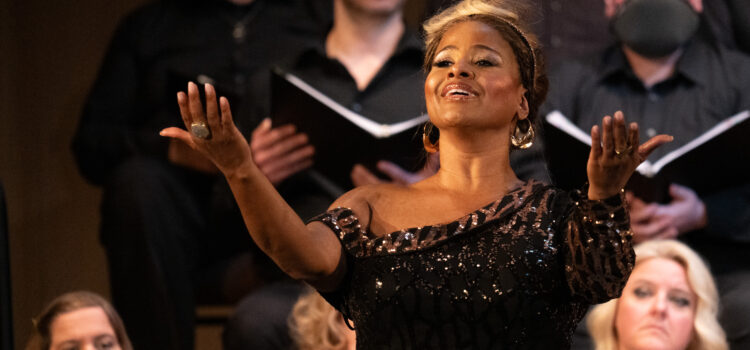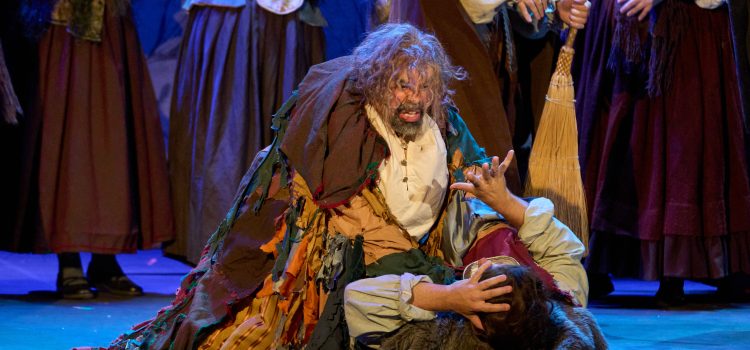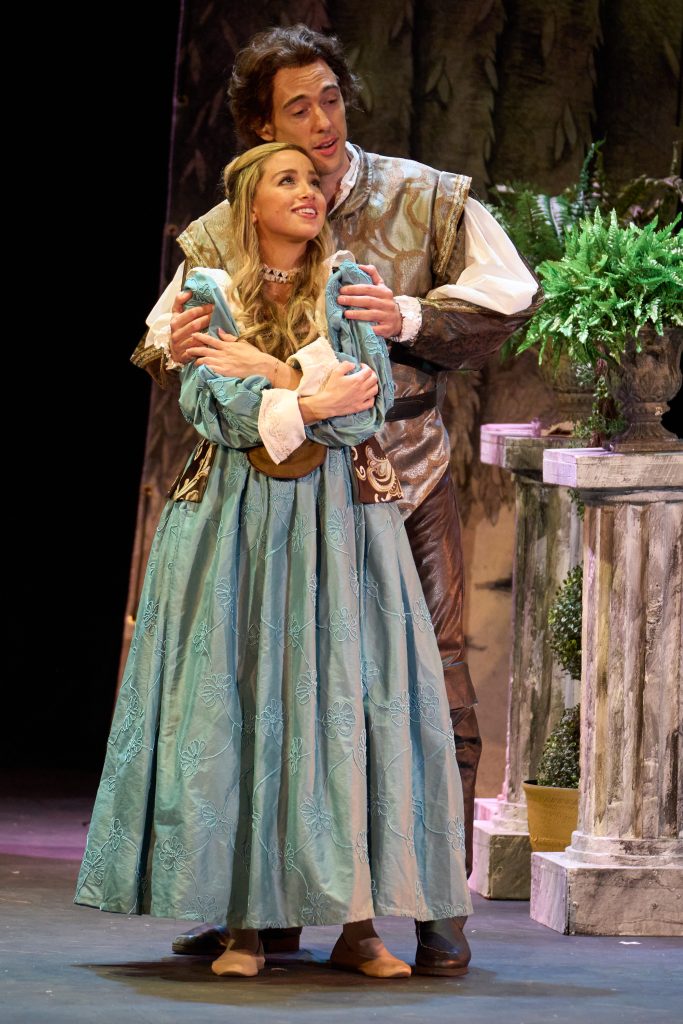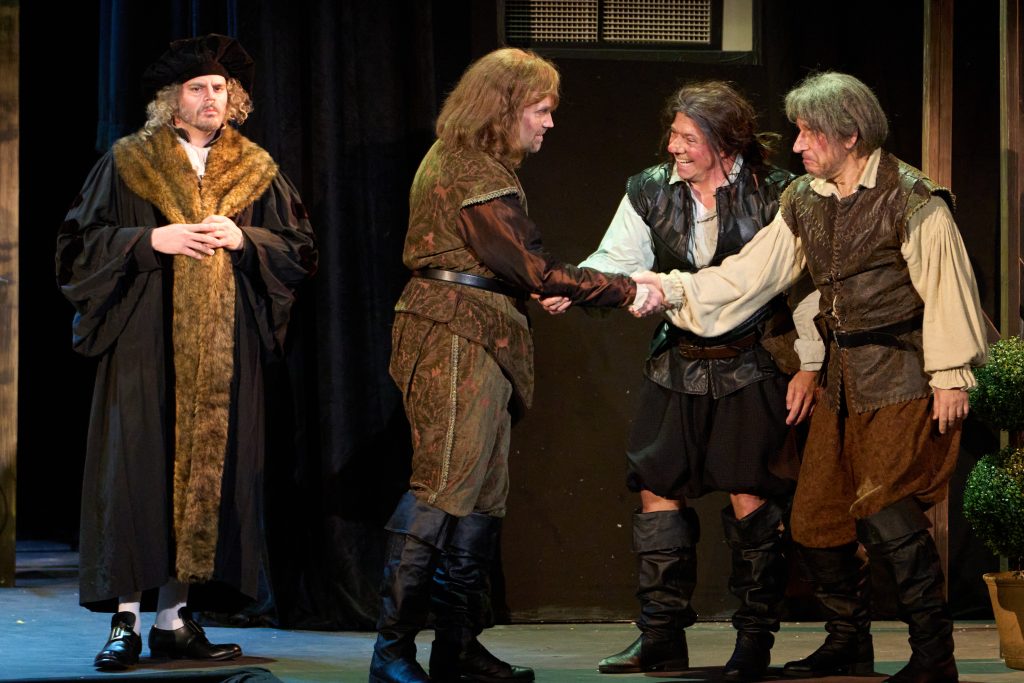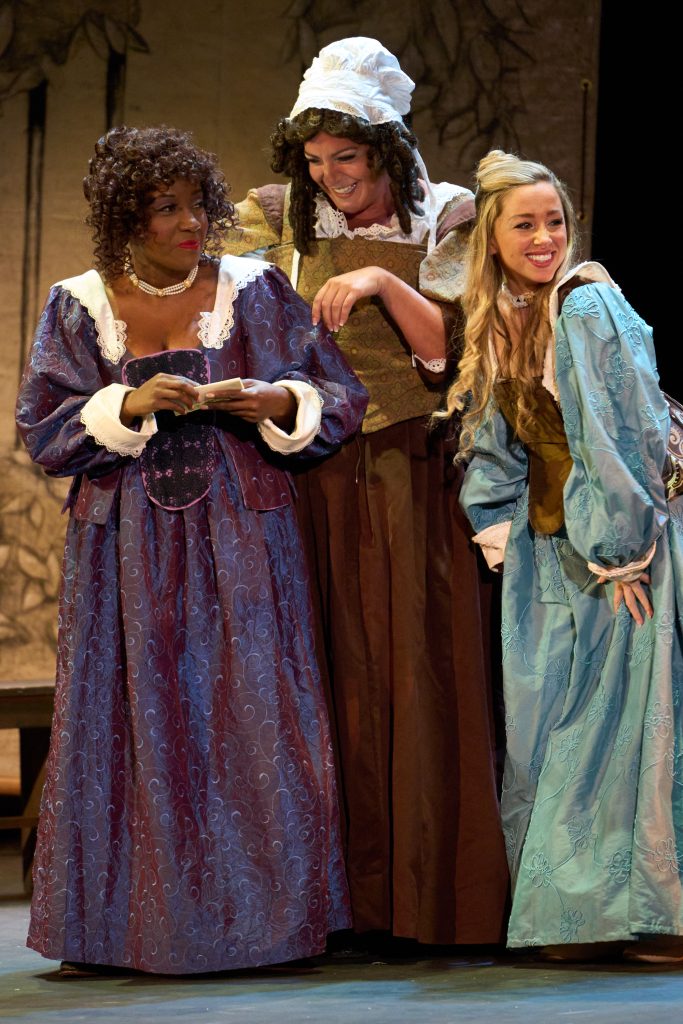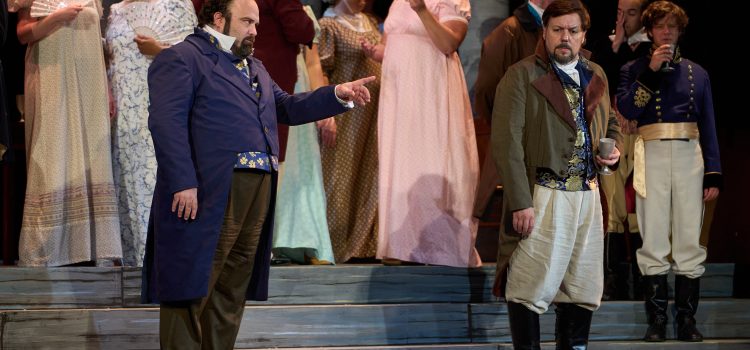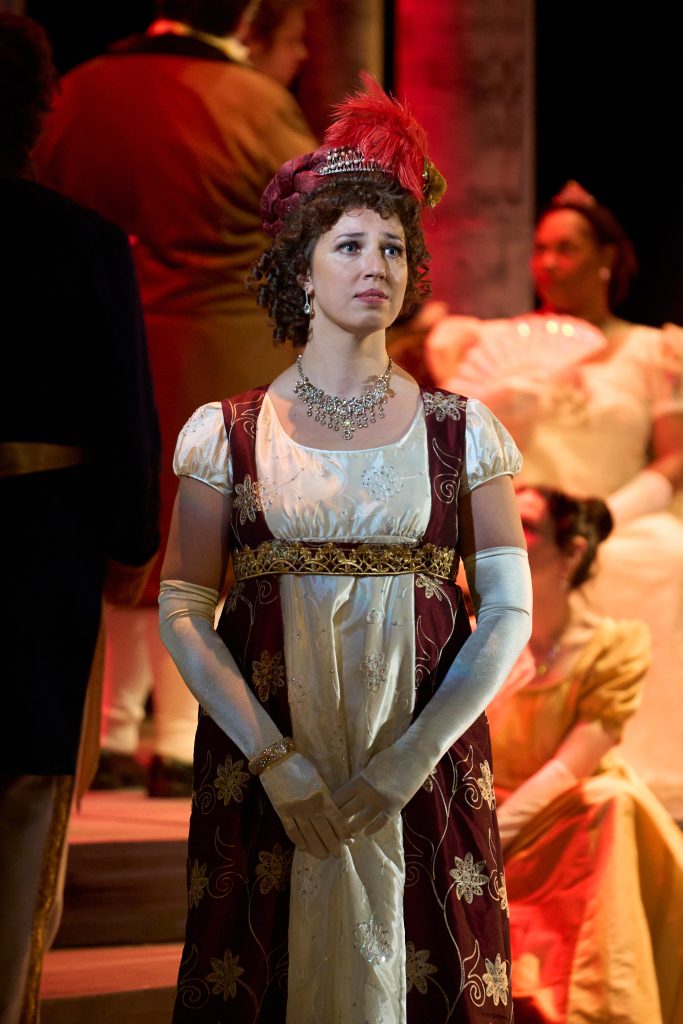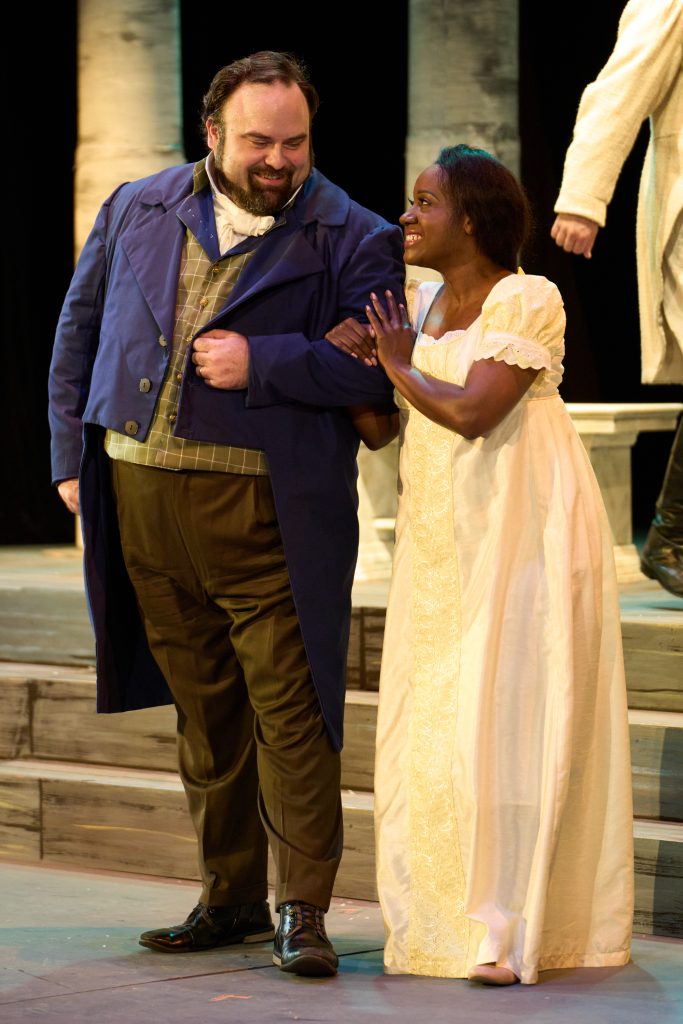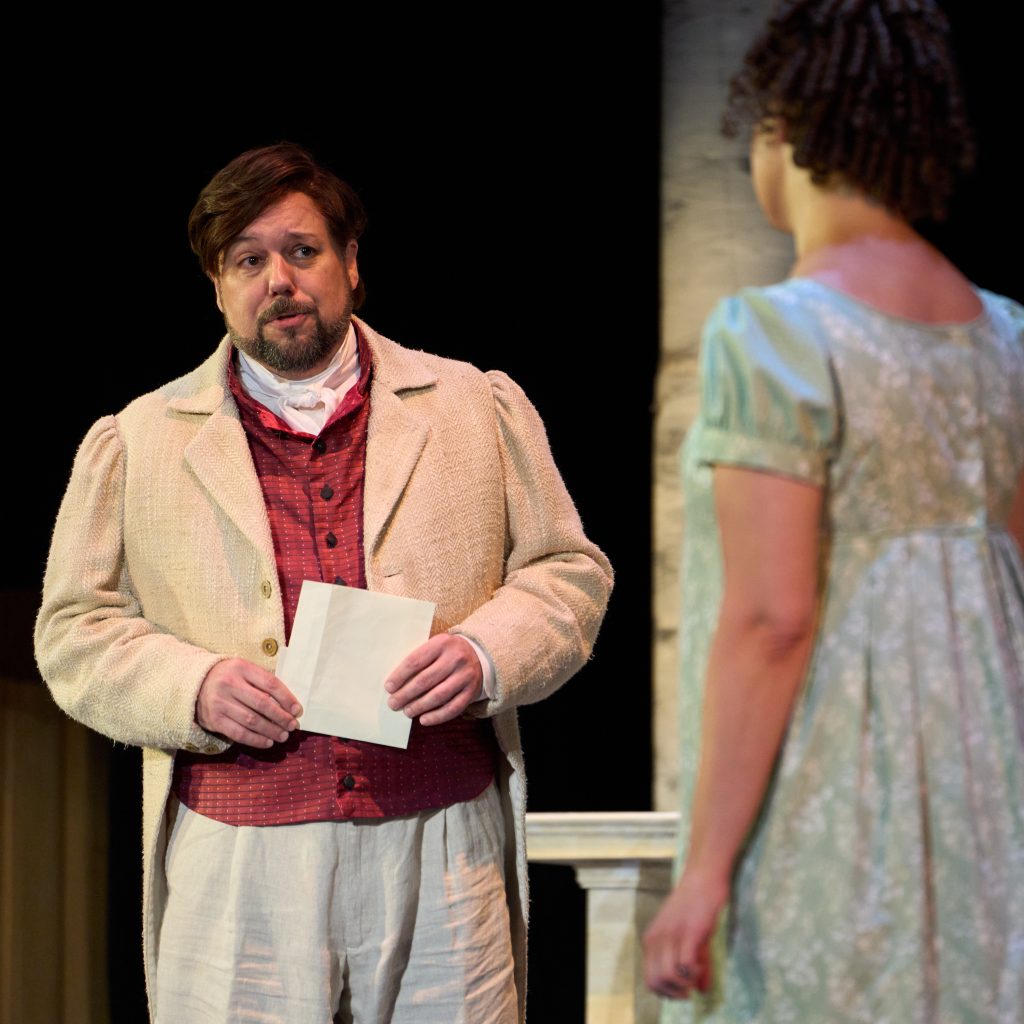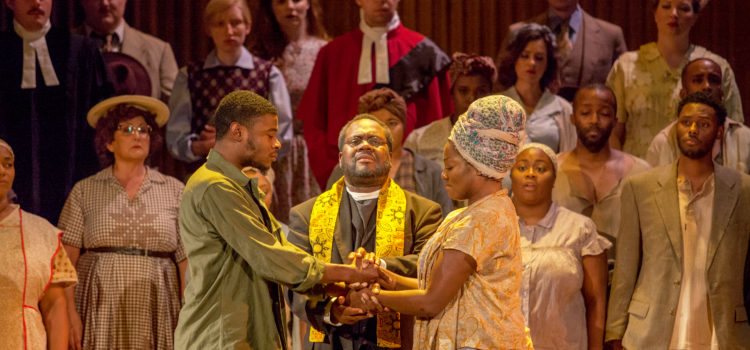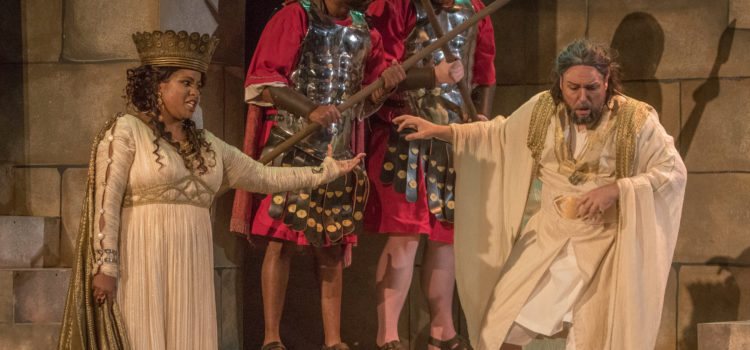By CB Adams
Union Avenue Opera’s concert version of Giuseppe Verdi’s “Aida” seems to have taken its cue from George Bernard Shaw when he wrote: “An opera may be allowed to be extravagantly expensive in its ornament, but its foundation must be plain and simple.” The key words are foundation, plain and simple – and that’s where this “Aida” shines.
Instead of the traditional fully staged production – replete with costumes, props and lighting effects – the concert format puts the singers. voices and the orchestra in the spotlight. With minimal staging, the singers focus more on their vocal delivery, leading to stronger vocal performance from the chorus to the leading characters. It’s all about the voices, and this production delivers a satisfying, intimate and powerful hybrid rendition of Verdi’s masterpiece.
And with fewer distractions from sets and costumes, the audience is freer to concentrate on the orchestration and musical nuances – both of which conductor Scott Schoonover delivers exquisitely. This concert format relies on vocal performances, and this production delivers the best in the cast and the orchestra.
“Aida” is work of great musical sophistication and this production elevates Verdi’s innovative instrumentation, such as his use of the oboe d’amore and the bass trumpet to add distinctive tonal colors that are unique to this opera.
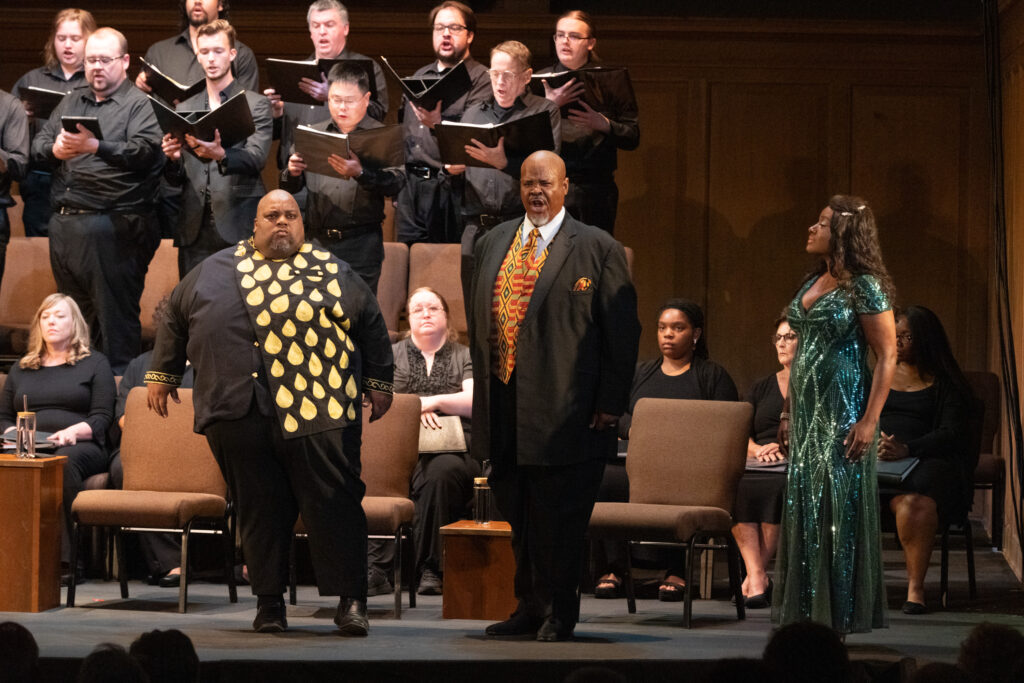
It also highlights his complex orchestration that blends instruments in unexpected ways to create rich textures, including the delicate string passages and the interplay between woodwinds and brass in the Prelude that set the tone for the opera’s dramatic narrative.
The pared down concert also reveals Verdi’s dynamic and rhythmic variations such as the sudden changes from pianissimo to fortissimo that transition from dramatic moments, such as the transitions between Aida’s introspective arias and the bombastic public scenes.
The role of the chorus is often overlooked or mentioned late in a review, but the chorus for this “Aida” deserves first mention. The large ensemble is on stage throughout the performance and serves as both an imposing physical and vocal backdrop to the goings on of the main tragic love triangle between Aida, an Ethiopian princess enslaved in Egypt, Radamès, the Egyptian military commander she loves, and Amneris, the Egyptian princess who is in love with Radamès.
The chorus often punctuates the performance with a full-throated, impressive punch with an impressive contrast to the solos and quieter moments.
Impressive, too, are the secondary parts of Ramfis, the High Priest, Amonasro, King of Ethiopia and father of Aida, and Gran Sacerdotessa, sung by Jacob Lassetter, Lloyd Reshard and Danielle Yilmaz, respectively. Among these excellent performances, Yilmaz’s is especially noteworthy for the relatively small role that plays a crucial part in setting the scene for the opera’s grand ceremonial moments.
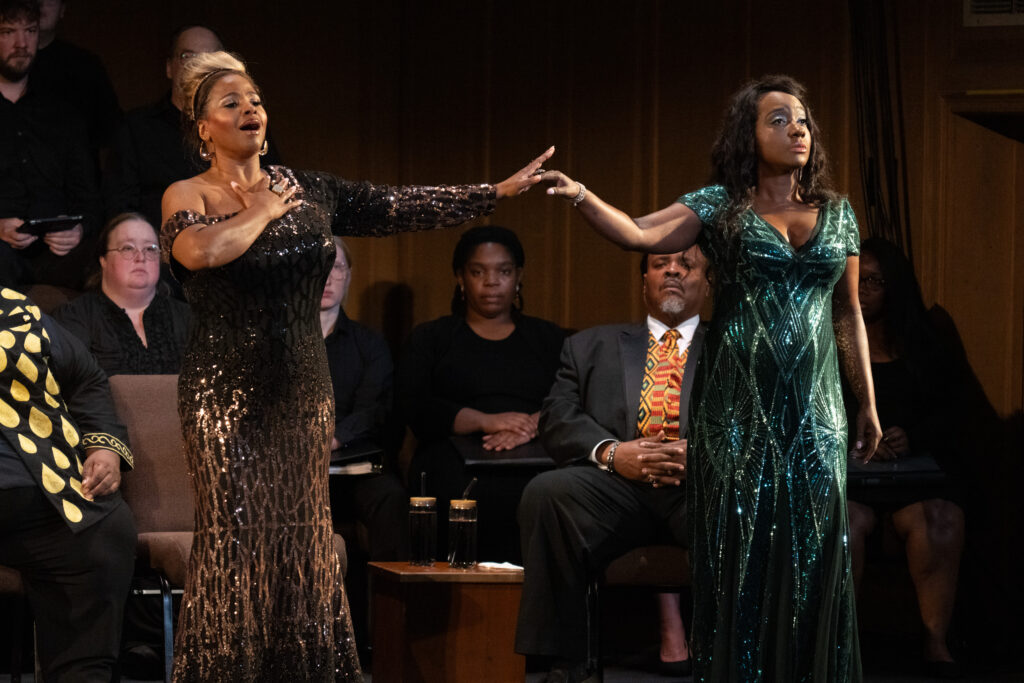
Yilmaz’s vocal purity and clarity, her expressive delivery and vibrant stage presence all combine to enhance the spiritual and mystical dimensions of the production. She intones her lines with a crystalline quality, providing a contrasting texture to the more robust voices of the principal characters. Her delivery of lines like “Immenso Fthà” felt otherworldly and imbued with a sense of ritualistic importance.
Bass-baritone Reshard commands the stage as Amonasro, with a powerful and still soft-edged voice that effectively conveys his anger. As Ramfis, Lassetter delivers his character with resonant vocal authority and depth, strong dramatic presence and gravitas.
For instance, in the Act 1 temple scene, he delivered Ramfis’s invocations and blessings with solemnity and a sense of ritualistic importance, which set the spiritual tone of the scene. In the final judgment scene, his calm, authoritative demeanor contrasted with the emotional turmoil of the other characters.
In the title role, soprano Marsha Thompson delivers a rich and satisfying performance of Aida with a powerful-yet-lyrical voice that conveys the character’s deep emotional turmoil, torn between love for Radamès and loyalty to her homeland. Her nuanced portrayal (including some theatrical hand and eye movements) captures Aida’s inner strength and vulnerability, delivering her arias with tenderness and intensity, particularly in the poignant “O patria mia.”
Tenor Lemmie Pulliam displays an impressive range as Radamès. Wearing a dramatic sash, he has a commanding stage presence and vocal power that delivers a profound depth to the role. His ability to convey Radamès’s inner conflict and heroic stature with both emotional intensity and technical precision, makes his performance a standout with an effective blend of dramatic prowess and lyrical beauty.
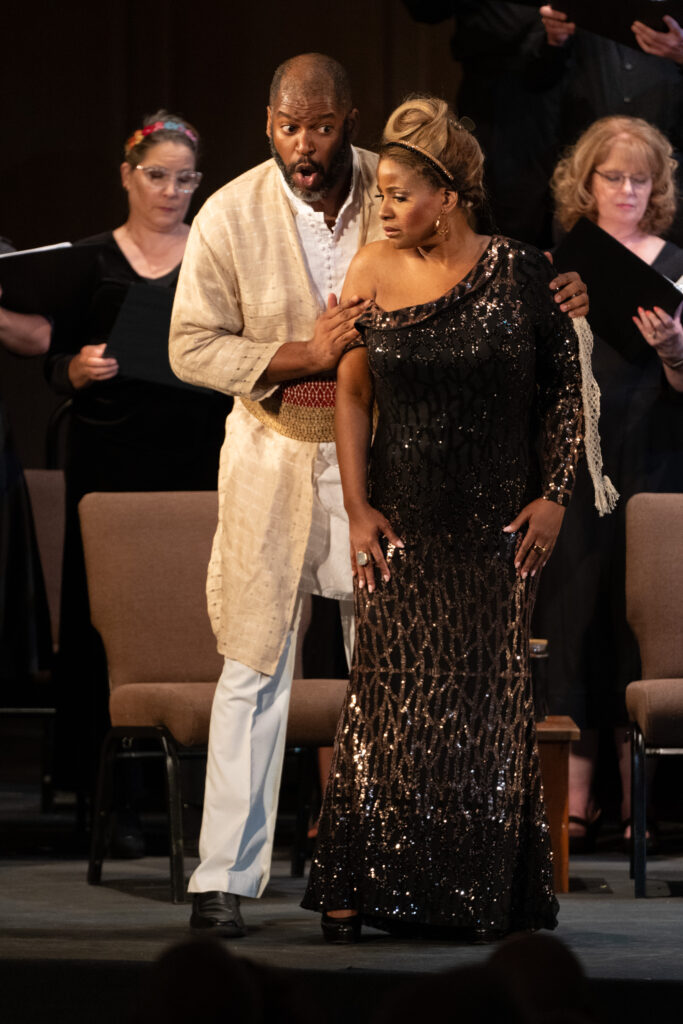
Amneris is the archetypal jealous diva with a heart of ice, and Melody Wilson weaves that personification seamlessly with the other characters. Wilson invites the audience to love to hate her as a royal drama queen whose idea of a fun includes thwarting her rivals and flaunting her power.
Wilson brings emotional complexity to Amneris, capturing her conflicted feelings of jealousy, power, and vulnerability. This adds layers to the character, making her more than just a scheming antagonist.
Beneath these characters – physically and aurally – is the orchestra, which shines with Schoonover’s adept and subtle directing. The orchestral accompaniment often provides a subtle underscoring that enhances the emotional context without overpowering the singers.
Although there are moments when the orchestra sonically overshadowed the singers (it must be difficult not to become overly enthusiastic when performing Verdi’s music), mostly it supports and enriches the vocal lines and confidently delivers Verdi’s score.
This can be particularly noted in the quieter, more introspective moments of the opera, where the orchestra’s role is to support and enrich the vocal lines.
The opera concert format was a good choice for Union Avenue. The modestly sized venue at Union Avenue Christian Church would have been challenging to put on a full production of “Aida.” The concert format is a nice change of pace that placed a premium on the singers. performances.
The result is an intimate and powerful interpretation of the opera that is distinguished by vocal artistry and dramatic expression with just the right amount of costuming and theatrically.
Union Avenue Opera’s “Aida” runs July 26, 28, and through Aug. 3 at Union Avenue Christian Church. Visit https://unionavenueopera.org for ticket information.
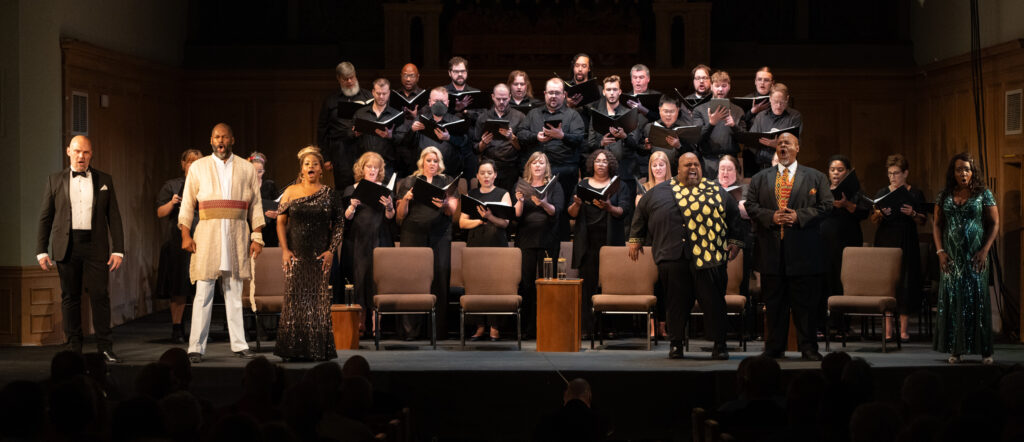

CB Adams is an award-winning fiction writer and photographer based in the Greater St. Louis area. A former music/arts editor and feature writer for the St. Louis Globe-Democrat, his non-fiction has been published in local, regional and national publications. His literary short stories have been published in more than a dozen literary journals and his fine art photography has been exhibited in more than 40 galley shows nationwide. Adams is the recipient of the Missouri Arts Council’s highest writing awards: the Writers’ Biennial and Missouri Writing!. The Riverfront Times named him, “St. Louis’ Most Under-Appreciated Writer” in 1996.

